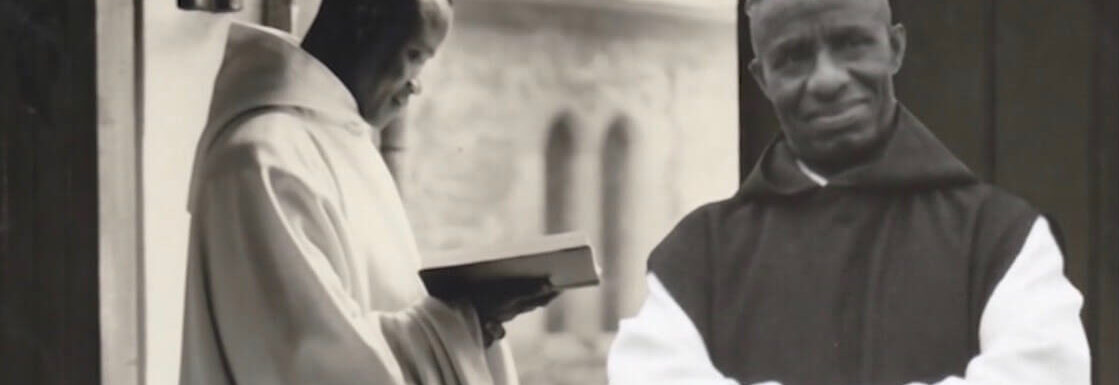When Tansi’s mother was pregnant with him, his dad got arrested.
As the story goes, the Royal Niger Company bought palm oil from the local people. And the company stored its oil in barrels for export.
Then one day, a native tried to steal from one of their barrels. He punctured a hole and the entire barrel emptied on the floor. Then he ran away.
So the Royal Niger Company rounded up and imprisoned some suspects, including Tansi’s dad, Tabansi.
While in prison, Tabansi was furious at the injustice for he was innocent. So he named his fourth child Iwe-egbune (meaning may anger not kill me). The name was shortened to Iwene.
Iwene Tansi was born in January 1903 to pagan parents in the town of Aguleri, Anambra State. His dad wanted him to get the Western education. So in 1909, he sent Tansi to a Christian village established by the missionaries.
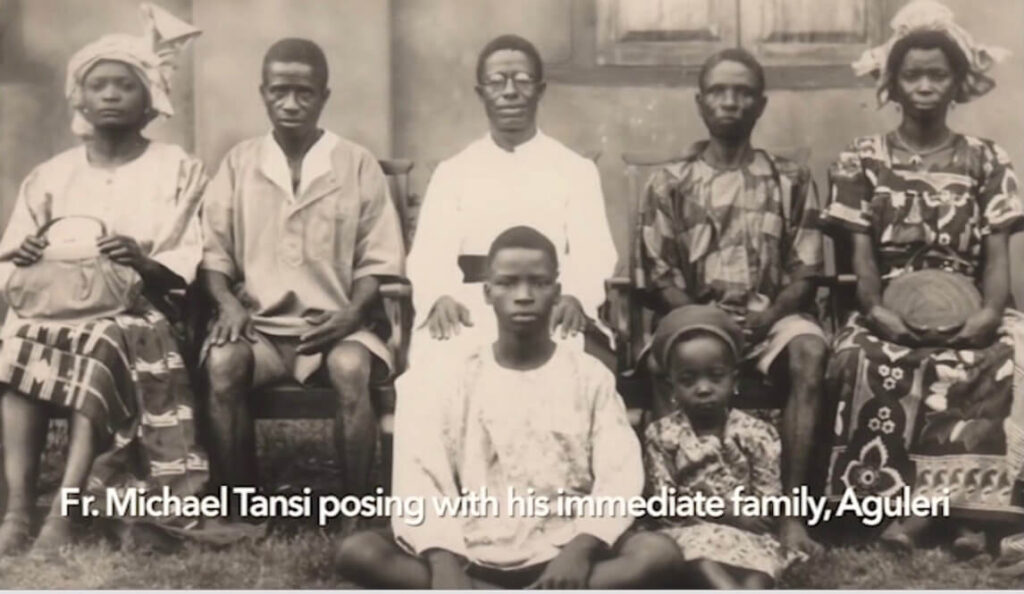
Tansi was blessed to leave home at an early age before he was influenced by the traditional pagan religion. And he was more blessed still to grow up in a Christian village.
Before he was baptized, he destroyed the personal idols given to him by his parents. And then he was baptized in 1913 and given the name Michael. He also made his first Holy Communion and was confirmed.
Next, Tansi enrolled in St. Joseph’s Primary School. He became an altar server and worked at the sacristy. And he also helped to instruct the catechumen.
This was when he began to pray before the Blessed Sacrament. This was when he learned the virtue of diligence, which served him well later in life.
Tansi obtained his teaching certificate in 1918 and began teaching at St. Joseph’s the next year. A year later, he was transferred to Holy Trinity, Onitsha, where he taught for three years. Then he returned to St. Joseph’s again as headmaster.
Tansi’s Early Encounter With the Cross
In 1922, Tansi had an encounter with the cross. His dad had died years before. And now his mom was about to be unjustly condemned to death.
Several children had died in the village. And the voodoo priest said Tansi’s mom was responsible. To prove her innocence, she had to drink a poisonous concoction before the people. If she were innocent, she would not be harmed.
She drank the poison and died.
She died a slow, painful death. And that added to Tansi’s grief, for she was innocent.
Tansi’s family really mourned for her. And this cross eventually led to the conversion of his siblings.
Tansi’s Vocation to the Priesthood
Bishop Shanahan opened St. Paul’s seminary at Igbariam in 1924. And the next year, Tansi sought admission there.
His extended family saw this as a dereliction of his duties to the family. But Tansi entered the seminary anyway.
While there, Tansi served as bursar, showing the great trust the missionaries placed in him. And in 1937, he was ordained by Bishop Charles Heerey at the Cathedral Basilica of the Most Holy Trinity, Onitsha. He was ordained with two others – Joseph Nwanegbo and William Obeleagu.
They were the first indigenous, locally-trained priests.
Tansi’s first assignment was as an assistant parish priest. He served Fr. John Cross Anyogu (Nigeria’s first indigenous priest) from 1938 to 1939.
Then Tansi was made Parish Priest at St. Anthony’s Dunukofia in 1940. And this was where Tansi accomplished much as a Priest.
Fr. Tansi’s Remarkable Apostolate at St. Anthony’s
At St. Anthony’s, Fr. Tansi vigorously opposed the pagan traditions of the people.
He especially despised the practice of masquerading, where young men put on hideous attires, and after rituals and invocations, become “ancestral spirits.”
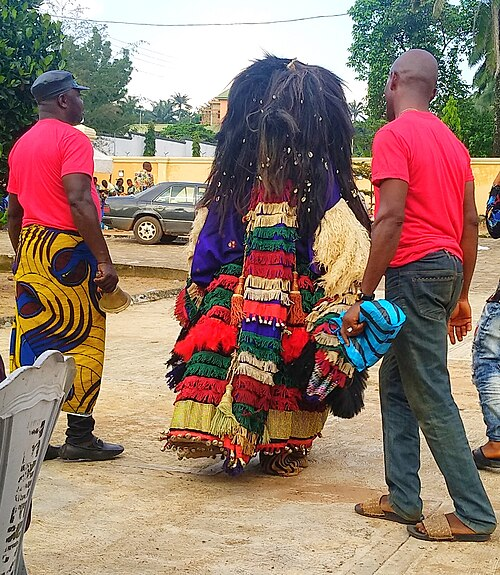
The masquerades used fear and violence to enforce pagan beliefs. But Fr. Tansi reduced their influence in the village. He preached against them and forbade people from going to their festivals.
Fr. Tansi also dispelled the belief in a “cursed forest,” a myth that cast terrifying fear of the devil into the hearts of his people. He ended the pagan custom of premarital cohabitation. Then he founded St. Anne’s & St. Mary’s, marriage preparation centres where young women learned how to be Christian wives and mothers.
He launched the League of Mary to guide the moral development of young people. He then took charge of the schools in Dunukofia, giving the students literary and religious instruction.
Fr. Tansi traveled great distances on foot or bicycle, going village to village, servicing the various outstations his Parish had. He preached, taught catechism, and administered the sacraments. Like the Cure of Ars, he also spent long hours in the confessional, returning home late at night.
He also left so many good examples. He said his Masses with great devotion and love for Our Lord Jesus Christ. He promoted devotion to the Sacred Heart of Jesus. He cared for the sick and the needy. He made many sick calls. He also took care of the lepers and the elderly.
And his love for Our Lady was singular. He prayed the Rosary often and encouraged his parishioners and spiritual children to honor Her as the Mother of God.
Then Fr. Tansi was transferred to St. Matthew’s, Akpu in 1945. And as Parish Priest, he replicated much of what he did at Dunukofia. By the time he was transferred again in 1949, he had laid a solid foundation for Catholicism in Akpu.
Fr. Tansi was known for his life of austerity. As a parish priest, he did great penances for the conversion of his flock. He took great pleasure in manual labour. He ate and slept sparingly. And during Lent, he would live on only yam and groundnuts.
In 1949, he returned to his native town, Aguleri, as Parish Priest. But his time here did not last long.
This was when he responded to God calling him to the higher state.
Fr. Tansi’s Monastic Vocation
Tansi decided to discern for a religious vocation after reading one book. And that book was Christ: The Ideal of the Monk by Dom Columba Marmion.
He expressed his desire to Bishop Heerey. And the good bishop approved his desire to try the monastic life. So Tansi first made a pilgrimage to Rome, and afterwards left Nigeria for England. He was accepted into the monastery of Mount Saint Bernard in 1950.
And that was his beginning of another life of mortification. Tansi had to bear the harsh cold of Leicestershire, along with the change in food, lifestyle, and culture. He was an oblate for two and a half years before finally being admitted to the novitiate. Tansi’s former assistant, Fr. Mark Ulogu, also joined the monastery.
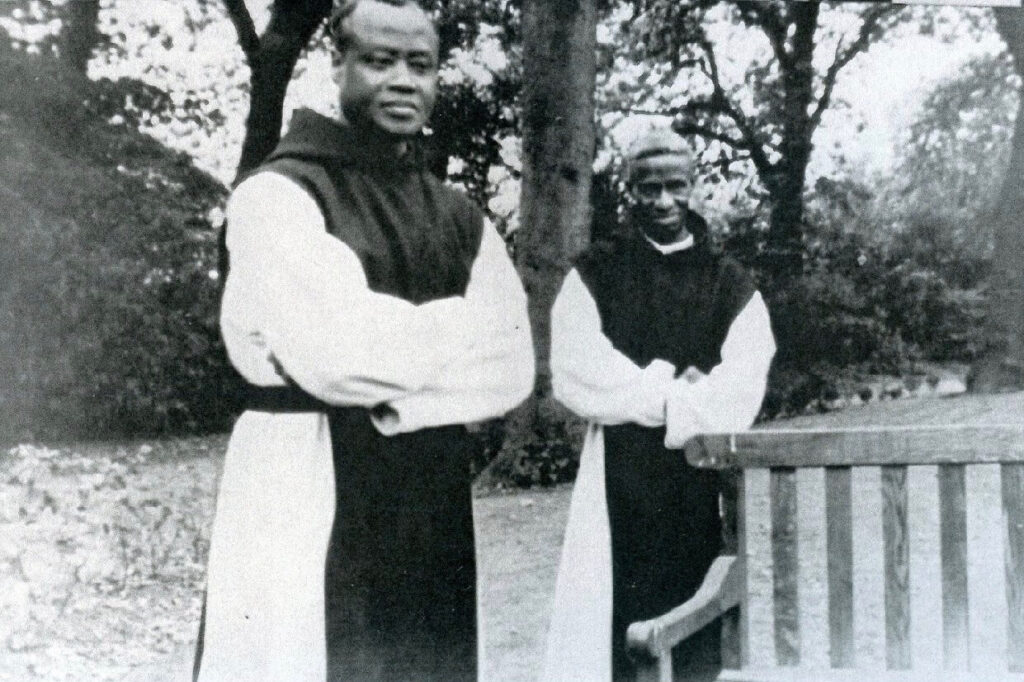
In 1953, both priests made their simple profession on the Feast of the Immaculate Conception. They were now Cistercian monks. And in his profession, Tansi took the name Cyprian.
Tansi faithfully lived his vows in the monastery. He was a shining example of sanctity and holiness. (As testified by his superiors and brothers when the cause for his canonization was opened.)
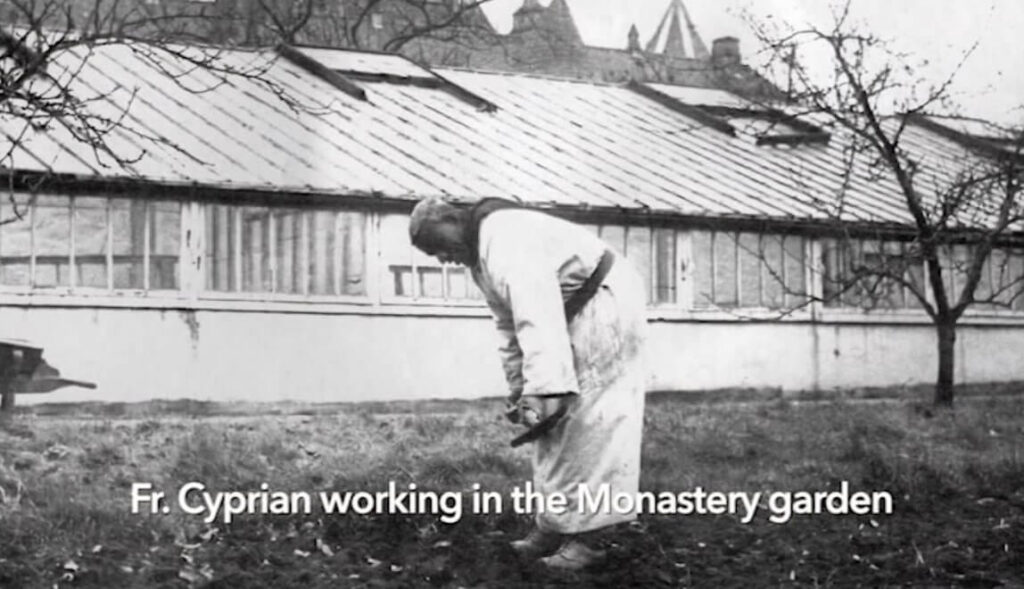
In 1963, plans were made to establish a monastery in Africa and Fr. Tansi was appointed Novice Master. However, his health declined in the following months.
On the feast of Epiphany 1964, Tansi celebrated what would be his last high Mass, with Fr. Mark serving as his deacon. Tansi died two weeks later, just after the departure of the monastery’s founders. He was buried at the cemetery at Mount Saint Bernard Abbey.
Tansi’s Cause for Beatification
After Tansi’s death, stories about his sanctity began to spread. So 20 years later, His Lordship Stephen N. Ezeanaya asked for his remains to come home.
In October 1984, Tansi’s remains were exhumed and brought to Nigeria. It was reinterred in the priest’s cemetery at Holy Trinity Cathedral Onitsha. And that was when Tansi worked his first miracle.
A young teenage girl, Philomena Emeka, had a malignant cancer in the peritoneum. She touched Fr. Tansi’s remains and was miraculously healed.
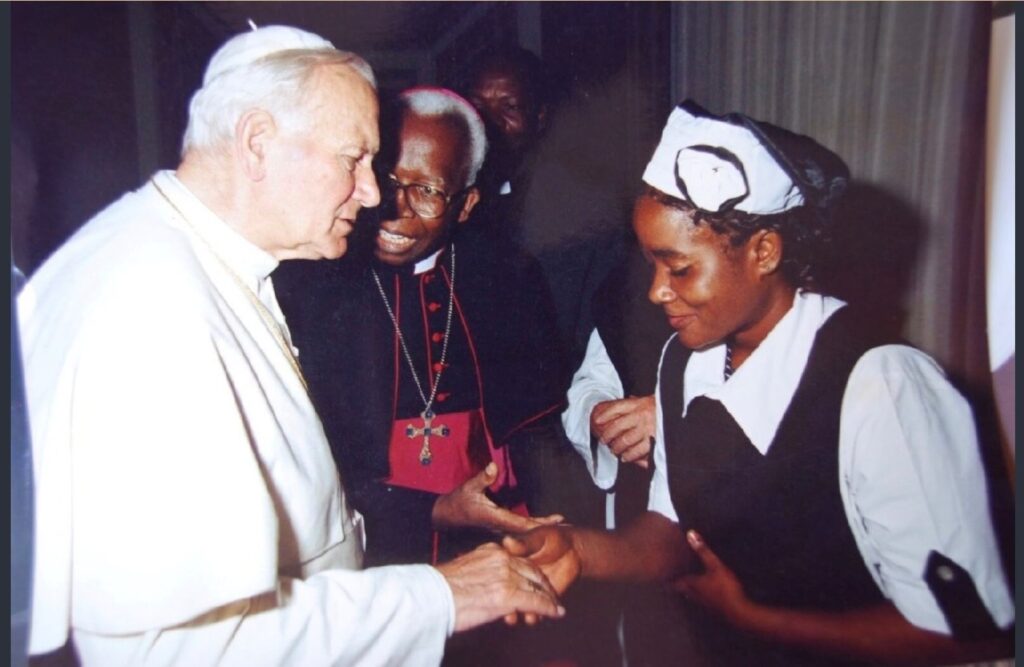
The process for Tansi’s beatification was opened in the diocese of Nottingham. Then it was transferred in 1986 to the Archdiocese of Onitsha, whose Archbishop was the present Cardinal Francis Arinze. (Cardinal Francis Arinze was one of the first children Fr. Tansi baptized as a young parish priest.)
In 1998, the then Holy Father, Pope John Paul II visited Nigeria. He beatified Father Cyprian Michael Tansi, proclaiming him to be a model of priestly zeal and prayer. And in June 2010, Nigerian Bishops declared Fr. Tansi the Patron of Nigerian Priests.
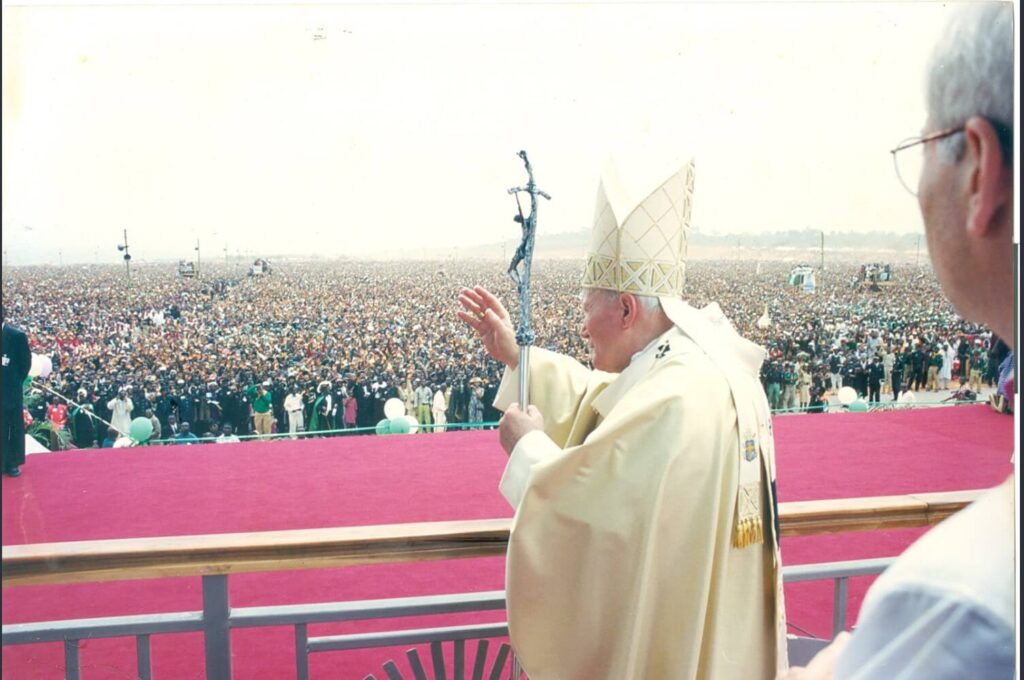
Excerpt From a Retreat Preached by Father Cyprian Tansi in August 1962, Two Years Before His Death
“We do very little good when we embark on our own. We do much good when we allow God to direct us and direct our enterprises. The Apostles, you remember, went fishing, laboured the whole night and got nothing. They were on their own. Then the Lord came and told them to cast the net and they would find. They cast their net and were not able to draw it back up, so great was the number of fish caught. When they worked by themselves, they took nothing. When they worked in the company of our Lord, they were full. So with us.
We must learn to avoid worrying ourselves about things, learn to do away with anxieties of all sorts. When you have something to do, an assignment to perform, remembering that we are not doing our work, but God’s work, we must first go to our Lord in the Blessed Sacrament, place our plans before Him and ask for His advice and assistance. We must examine before Him how He would like us to produce, whether he would like us to do one thing or the other. If in doubt, consult your spiritual director for advice. You should never undertake to do anything unless you are sure that God wants it done in the way you are planning. Above all things you should never do your own will: you should do only what the superiors want to be done. You should never force the superiors to yield to your will by any stratagem.
And while doing whatever you have to do, you should do it at a pace and speed that will allow you time continually to turn to God for guidance. Your conversation with God should be continual. Remember that you cannot achieve this spiritual disposition in a day. You need time, practice and patience. All that I request you now is to examine and to see whether what you are told is the truth. If it is, then make a resolution to continue to make an effort in this direction without minding whether you succeed or fail.”– Michael I. Tansi, o.c.s.o., Irrational Love: Incarnation and Redemption, an Incomprehensible Love (Onitsha, Nigeria: Archdiocesan Secretariat, 1989), p.35

